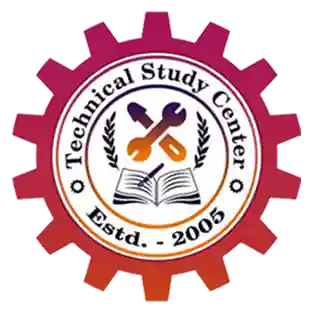The world of engineering and construction depends on skilled hands and sharp minds. A fitter is the backbone of industries, assembling and maintaining machines, pipelines, structures, and mechanical systems. Whether in factories, railways, power plants, or shipyards, a fitter ensures that everything runs smoothly and safely.
At Technical Study Center, we offer top-quality training in the ITI Fitter course, preparing students with practical skills, deep technical knowledge, and problem-solving abilities. We don’t just teach—you train, practice, and master the art of fitting.
Why Choose the ITI Fitter Trade?
Many believe that a fitter’s job is simply to cut, shape, and join metal. But a true professional fitter is much more than that. They are:
✅ Mechanical problem solvers – Understanding how machines and structures work.
✅ Precision experts – Making sure every joint, pipe, and fitting is perfect.
✅ Safety specialists – Knowing how to create strong and secure installations.
With the right training, a fitter can work in manufacturing, oil and gas, construction, railways, defense, and many other industries.
Mastering the Art of Fitting
1. Learning the Blueprint – A Fitter’s Secret Weapon
A common mistake students make is jumping into work without understanding technical drawings. But a professional fitter reads, interprets, and follows blueprints with precision.
At Technical Study Center, students learn:
✔ How to read engineering drawings – Understanding measurements, dimensions, and tolerances.
✔ How to visualize 2D designs in 3D – A key skill for assembling machine parts correctly.
✔ How to plan a fitting job – Avoiding mistakes before cutting or welding materials.
Example: Imagine you are fitting a pipe system in a factory. A small misalignment can cause leaks, pressure issues, or system failures. But with the right training, you will install it perfectly the first time.
2. Hands-on Training with the Latest Tools
Many ITI students only learn theory and struggle when they enter the real world. At Technical Study Center, we believe in learning by doing.
We train students with:
✔ Hand tools – Hacksaws, files, chisels, and measuring instruments.
✔ Power tools – Drilling machines, grinding machines, and cutting torches.
✔ Welding basics – Gas and arc welding techniques for metal joining.
✔ Pipe fitting and structural fitting – Learning how to assemble large structures without errors.
Example: If you are working in railways, you may need to install and align heavy metal structures. With the wrong tools or technique, it won’t fit properly. But a skilled fitter gets it right the first time.
3. Precision and Measurement – The Key to Success
A professional fitter must measure everything accurately because even a 1mm mistake can ruin an entire project.
At Technical Study Center, we focus on:
✔ How to use measuring tools – Vernier calipers, micrometers, and spirit levels.
✔ How to check alignment – Using laser tools and digital measuring devices.
✔ How to prevent errors – Learning quality control techniques.
Example: In the aviation industry, fitters assemble aircraft parts. A small mistake in measurement could make a plane unsafe. That’s why precision is everything.
4. Learning to Work Under Pressure
Fitters often work in high-pressure industries where work must be done quickly and correctly. At Technical Study Center, we prepare students for real-world challenges.
✔ How to repair breakdowns quickly – Fixing industrial machines on short notice.
✔ How to work in extreme environments – Fitting jobs in hot, cold, or tight spaces.
✔ How to troubleshoot mechanical problems – Understanding why a system is failing and how to fix it.
Example: In oil refineries, pipes carry flammable liquids. If a fitter does not install or repair them correctly, it can be dangerous. A trained fitter keeps things safe.
Beyond Fitting: Smart Career Strategies
At Technical Study Center, we don’t just teach technical skills—we also prepare students for a successful career.
✔ Understanding workplace safety – Following industry safety standards.
✔ Time management – Completing projects on time.
✔ Learning how to communicate – Working with engineers, supervisors, and clients.
✔ Exploring self-employment options – Starting a small workshop or contracting business.
Many fitters become supervisors or even start their own fitting businesses with the right knowledge and experience.
Training at Technical Study Center
✅ Live Practical Training – Learning with real machines and tools.
✅ Industry-Based Projects – Practicing with real engineering challenges.
✅ Mock Exams & Job Readiness Training – Preparing for government and private sector opportunities.
✅ Expert Trainers with Real-World Experience – Learning from professionals.
